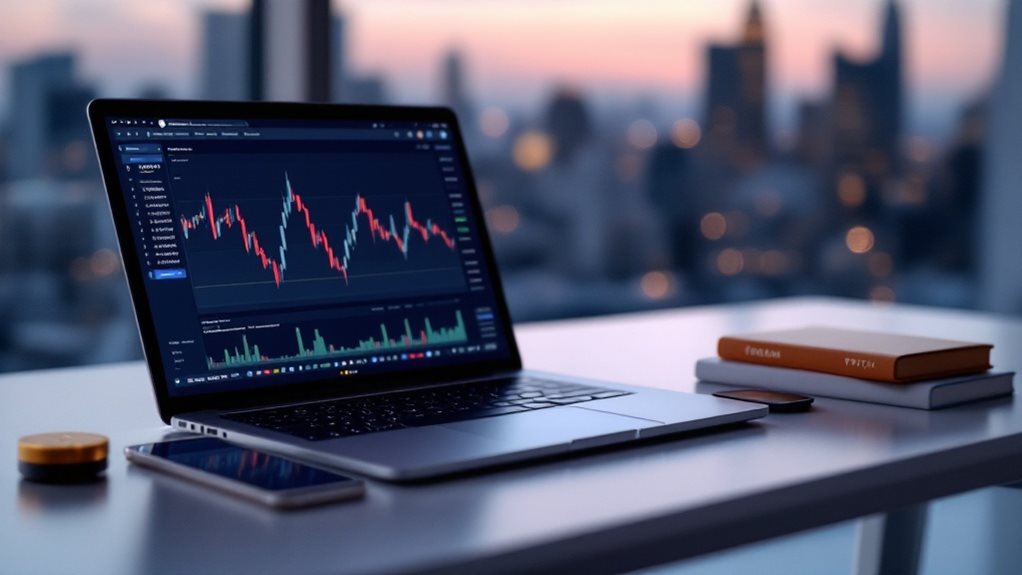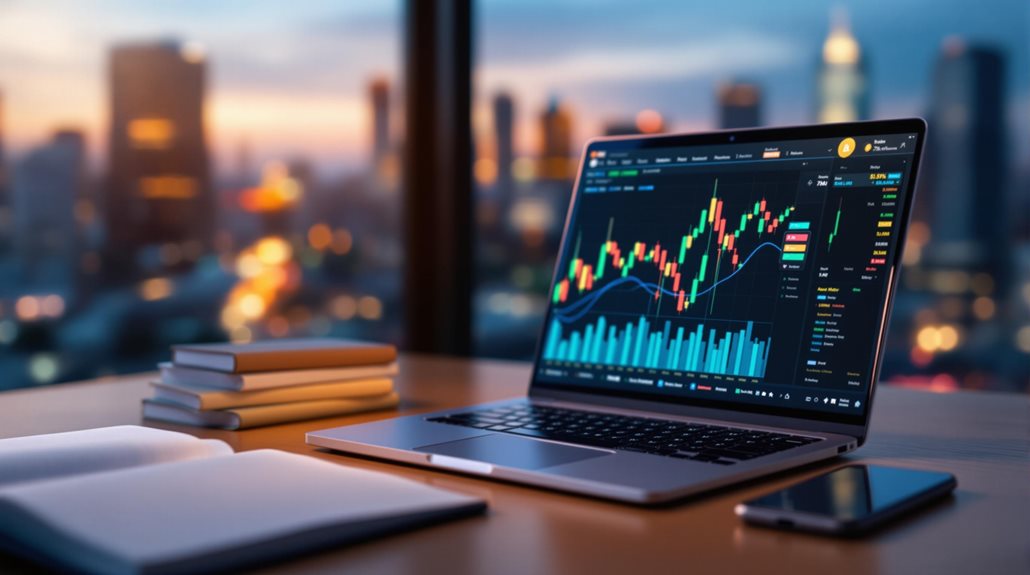Getting started with cryptocurrency involves several key steps. Newcomers typically begin by selecting a regulated exchange that supports their local currency and offers educational resources. They'll need to set up a secure wallet, either online (hot) or offline (cold), with proper security measures like two-factor authentication. Many beginners start with established cryptocurrencies like Bitcoin or Ethereum. Understanding blockchain basics and staying informed about market trends helps investors navigate this evolving digital landscape.

Wondering about getting started with cryptocurrency? Before diving into the world of digital currencies, there are vital steps that new cryptocurrency users typically follow. These steps help them navigate this technology safely and effectively.
When starting with cryptocurrency, users first need to select a cryptocurrency exchange. They look at different factors like trading fees, security measures, and which cryptocurrencies are available. The exchange should be regulated in their country and support regular money (like dollars or euros). Many beginners prefer exchanges that offer educational resources and have user-friendly interfaces. Over 2.4 million cryptocurrencies exist in the market today, making exchange selection crucial for accessing desired coins. Most exchanges require identity verification before allowing users to trade or make purchases.
The next important step is setting up a cryptocurrency wallet. Users can choose between hot wallets (connected to the internet) or cold wallets (offline storage). Hot wallets are convenient for frequent trading, while cold wallets, like hardware devices, provide better security for long-term storage. Most users enable two-factor authentication and store their wallet recovery phrases in multiple secure places. Long-term investing is generally recommended over short-term trading due to market volatility.
Many newcomers start their cryptocurrency journey with well-established coins like Bitcoin or Ethereum. These cryptocurrencies have large market values and high trading volumes, making them more stable than lesser-known coins. Users often begin with small amounts and gradually expand their holdings as they learn more about different cryptocurrencies. Active traders commonly use technical analysis to make informed trading decisions.
Education plays a key role in cryptocurrency success. Users stay informed through cryptocurrency news websites, blogs, and online communities. They participate in discussions on forums and attend virtual events about blockchain technology. Learning about blockchain basics and keeping up with regulatory changes helps users make informed decisions.
The cryptocurrency market operates differently from traditional financial markets. It's open 24/7 and can experience significant price changes in short periods. Users who understand these characteristics can better navigate the market's ups and downs. They learn about various trading platforms, different types of orders, and basic market analysis.
Security remains a top priority in cryptocurrency. Users implement strong passwords, use secure internet connections, and regularly update their software. They're careful about sharing personal information and verify all transaction details before sending funds. Most experienced users keep their private keys and recovery phrases offline, away from potential cyber threats.
Getting started with cryptocurrency involves multiple steps and ongoing learning. As the technology continues to evolve, users adapt and update their knowledge regularly. They focus on understanding both the technological and practical aspects of cryptocurrency use, helping them participate in this digital financial system effectively.
Frequently Asked Questions
What Happens to My Cryptocurrency if the Exchange Platform Shuts Down?
When an exchange shuts down, user accounts are typically frozen right away, blocking access to funds and trading.
If the exchange goes bankrupt, users become creditors and must file claims to try to get their money back.
The recovery process can take months or years, and there's no guarantee of getting all funds back.
Users might only recover a portion of their original investment, depending on the exchange's financial situation.
Can I Recover My Crypto if I Lose My Wallet Password?
Crypto wallet recovery depends on what someone has available.
If they've kept their seed phrase (recovery words), they can easily restore their wallet access. Without the seed phrase, it's much harder.
There are password recovery tools like BTCRecover that might help. Some people turn to professional crypto recovery services, but success isn't guaranteed.
Hardware wallets have different recovery options based on their manufacturer.
How Are Cryptocurrency Transactions Taxed in Different Countries?
Cryptocurrency tax rules vary widely around the world.
Some countries, like Germany and Portugal, don't tax crypto profits if you hold them long enough.
Others, like India and France, charge high flat rates of 30%.
The US treats crypto like property and taxes gains when sold.
A few places, like El Salvador and Puerto Rico, have no crypto taxes at all.
Meanwhile, China's taken the extreme step of banning crypto completely.
Why Do Cryptocurrency Prices Fluctuate so Dramatically?
Cryptocurrency prices swing dramatically because they're influenced by multiple factors.
Supply and demand play a big role – when more people want to buy than sell, prices go up fast.
Market sentiment also affects prices, with news and social media buzz causing quick changes.
There's no central authority controlling prices, and the markets run 24/7.
Big traders called "whales" can move markets considerably, and regulatory news often triggers sharp price movements.
Is Mining Cryptocurrency Worth the Electricity Costs?
Mining cryptocurrency's profitability depends heavily on electricity costs. The average household power cost to mine one Bitcoin is over $46,000.
Most successful miners operate where electricity rates are $30-$70 per MWh, far below typical residential rates. Even with efficient mining hardware, rising network difficulty and market volatility make profits uncertain.
Large-scale operations with access to cheap power have better chances of turning a profit than home miners.





